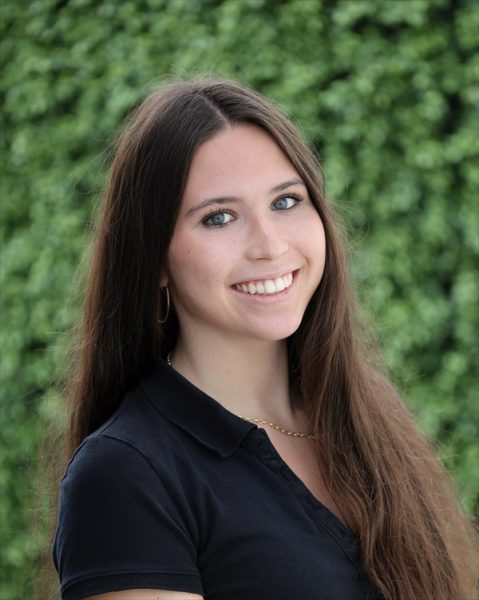Making cents of money
November 3, 2014

Liana Lum
News Editor
Tracking her daily expenses from Tully’s Coffee runs to clothing purchases into an Excel spreadsheet, senior Alexandra Wood emails her monthly spendings to her mother, who checks the records before giving Wood the next month’s allowance.
“I learned about the importance of saving,” Wood said. “Even if I have money in my account, I need to just fill up a nice savings account for college.”
Like many other high schoolers, Wood manages her money in preparation for college and beyond, learning financial skills and the importance of having a budget.
“Young people, on average, tend to have a high percentage of discretionary income, meaning a high percentage of the money they take in can be used more freely because they are not paying household expenses,” Susan Sharkey, Director of the National Endowment for Financial Education High School Program, said. “They have an advantage in which they have a few dollars they can always put away and get into the habit of saving money.”
Whether students work or receive an allowance, the rationale in spending and saving money is the same, according to Eddy Gutierrez, Vice President Senior Financial Advisor at Merrill Lynch.
“The whole idea of finance is taking some of your earnings or allowance and putting it away, knowing you’re not going to spend it right away,” Gutierrez said. “You then spend the rest of your money wisely as opposed to blowing it all away in a week.”
Eighty-six percent of teenagers said they would rather learn about money management in the classroom than make financial mistakes in the real world, according to a 2011 Charles Schwab survey. Learning how to budget money comes into play when students enter college.
“In a couple of years, you’re going to be out on your own, living on your own and relying on yourself,” Gutierrez said. “You need to learn how to manage money so you have ideas around budgets. It’s important to start in high school as opposed to in college.”
Sharkey recommends creating savings accounts where money will be less tempting to spend as well as a checking account with just enough money for regular spending.
“As your saving builds up, I would also consider moving it to a certificate of deposit (CD) because it earns interest more frequently or investing in mutual funds that grow over the average inflation rate of approximately 3 percent,” Sharkey said. “You want to look for ways you can grow your money and make it work for you.”
It is not too early for teens to think about the future in terms of retirement and an emergency fund.
“I would suggest saving for retirement as soon as you get a job,” Sharkey said. “If you start early, it will pay off because the money can be invested, helping it grow faster for retirement.”
The importance of having enough emergency savings was among the top lesson learned from the recession by teens, earning 73 percent of votes in the Charles Schwab survey.
“Creating an emergency fund, a pool of money that will grow systematically, gives you that cushion of emergency money,” Gutierrez said. “You’re less reliant on asking for money in the event of an unexpected expense.”
Some high schools offer teens the opportunity to gain knowledge and experience on money management, forming skills of discipline needed for personal finance habits. Economics teacher Michael Steinbrecher instructs students to record expenses and then speak with their parents on their monthly budget for college, comparing the numbers.
“The only way to manage your money wisely is to not give in to urges,” Steinbrecher said. “You need to learn to make substitution choices and have limits on buying so you don’t live beyond your means.”
Being unaware of such limits can result in debt and restrict financial freedom, which is especially easy when using credit cards.
“So many youngsters make mistakes with credit cards because they are easy to get and use,” Steinbrecher said. “A destroyed credit rating will take decades to fix, and if you don’t manage your money well, no one will lend you any. That’s going to have huge ramifications.”
Holding a job is one way students can become more conscious of their financial spending.
“It’s made me think twice about the money I spend,” junior Franny Eklund, who has worked at Pacific Puffs since the beginning of summer, said. “Before I buy things, I’ll think ‘This costs this many hours of work.’ It’s made me more frugal, which is good in preparation for college.”
Students have also pursued an interest in economics through personal projects, learning about basic economic theories.
“My partner and I created an online resource for teens,” junior Willa Hegarty, who studied teen finance for her Sophomore Project with junior Sophia Slacik, said. “There they can learn about the fundamentals of the stock market and different techniques to manage their money through videos we produced.”
The National Financial Educators Council reported that youth from over 40 states scored an average of 59.6 percent on their National Financial Literacy Test, indicating the number of teens uneducated in finance.
“When I first heard about finance on NPR (National Public Radio), it seemed like one big ambiguous concept,” Slacik, who is also co-treasurer of the Junior Class with Hegarty, said. “After learning about the stock market and getting some basic knowledge, I now understand finance’s major influence in world affairs, and I can comprehend more news topics.”
Bad habits can develop as a consequence of not wisely managing money and being financially uneducated, according to Gutierrez.
“If you accustom yourself to going through money the moment you get it, then 10 years later you’ll be living paycheck-to-paycheck,” Gutierrez said. “If there’s an interruption in the paycheck flow, you won’t have a safety net to fall back on.”
By building a financial foundation in high school, teenagers can develop skills that will help them throughout life.
“The goal should be building good habits,” Gutierrez said. “That way when you go into the workforce and start making money, you already have that frame of mind where the moment you earn money, you allocate a certain amount to saving and reasonably spend the rest.”
“In college, my mom won’t be there to check on my spending,” Wood said. “I’ll be able to get a job and save my money.”









